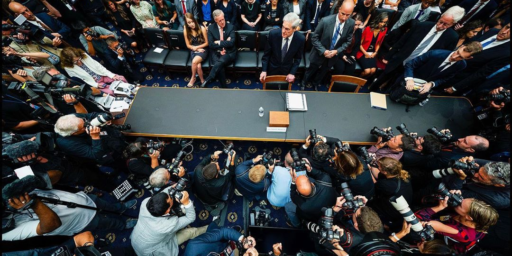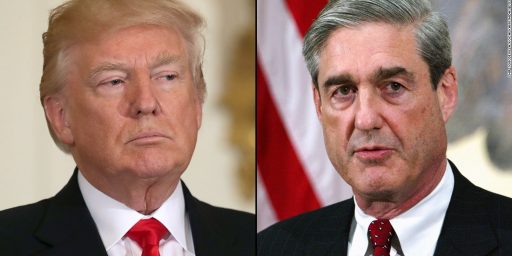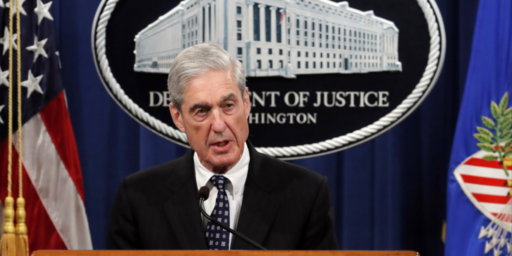9-11 panel: No FBI shake up needed
UPI – 9-11 panel: No FBI shake up needed
The Sept. 11 commission’s final report says the FBI should continue to be in sole charge of intelligence gathering in the United States, rejecting calls for a U.K.-style domestic spy agency. *** Turner said the commission rejected widespread calls to strip the FBI of its domestic intelligence analysis and collection role and give this power to a new, separate agency modeled on Britain’s domestic spying organization. “They clearly do not recommend an MI5 model,” he said.
The decision will be seen by many as a vindication of the FBI and in particular of its embattled director, Robert Mueller. The FBI has been fiercely criticized — not least by commissioners themselves –for its failure to disrupt the suicide hijacking plot of Sept. 11, 2001, despite the arrest the previous month of Zacarias Moussaoui, now accused of being the 20th hijacker, and the suspicions some agents had about Arab Muslim men training at U.S. flight schools.
“With so little confidence right now in the FBI,” asked Commissioner Tim Roemer at a public hearing in April, “and the stakes being so large for the security of the country, why should we give the FBI another chance?” Commission Chairman Thomas H. Kean was even blunter at the same hearing. “I came to this job with less knowledge of the intelligence community than anybody else at this table,” he told Mueller. “What I’ve learned (about the FBI) has not reassured me. It’s frightened me a bit, frankly. Kean made it clear that the most important question was whether they believed the job of repairing the FBI could be safely left to the director. “I guess the decision which I’ve got to make as a commissioner here is, can you fix it? Because the FBI is absolutely essential … and if you can’t fix it, then we’ve got to make some recommendations and structural changes that may be able to fix it.”
Although the commissioners and their staff have remained tight-lipped about the contents of their report, it seems Mueller won their confidence by making counter-terrorism the bureau’s No. 1 priority and forming an intelligence directorate to take charge of gathering information about possible terrorist activities in the United States. “I believe the commissioners felt that the FBI was moving in the right direction,” said Turner, “and that movement — if accelerated — can accomplish the task (of reform). My sense is that they chose not to disrupt this process.”
“If that’s accurate, I’m glad to see that,” former FBI counter-terror chief Larry A. Mefford told UPI. “It reflects confidence in director Mueller.” “Compared to the CIA, the FBI has at least come forward and said ‘there’s a problem,'” said one U.S. government official with an intelligence background who has followed the commission’s work. “Actually, it’s not even the FBI,” the official went on “The bureau is in denial (about its flaws), just like the CIA. It’s Mueller. Mueller knows there’s a problem.”
If the commission’s decision is a vindication for Mueller, it piles the pressure on his appointee as head of the new intelligence directorate, Maureen Baginski, who now has to deliver on his promises of reform. At the April hearings, she was closely questioned about her new role. “You are posited as the solution to many problems,” commission member and former senior Justice Department official Jamie S. Gorelick told her. “Many times we have asked the question, How is X going to get fixed? Who’s going to do Y?” Gorelick went on, “And often, very often, maybe too often for your comfort level, ‘Mo Baginski’ is the answer.”
But the FBI’s defenders say that Baginski’s appointment is just the tip of an iceberg of reform that is developing “a service within a service” — a directorate that uses the bureau’s traditional law enforcement role to maximize its intelligence gathering capabilities. “The bureau right now is trying to marry counter-terrorism and intelligence, according to a strategy it adopted last year,” Mefford said. He said the focus was on long term work, “tasking all FBI field offices to build relationships and develop sources that will help them identify and get information about potential terror threats; getting them to find out if there is any terrorist activity in their area.
***
But other long-term observers of the FBI were more skeptical — especially about the ability of the bureau to be proactive in intelligence gathering. “Collecting bits of intelligence that you bump into in the course of your law enforcement activities isn’t intelligence gathering,” said one former senior CIA official. Others share his view that the problem is a cultural one, not easily solved. “No one has ever shown me how a law enforcement agency can create an intelligence culture,” former National Security Agency chief William Odom told a Senate hearing on intelligence reform Wednesday. “It’s not the fault of the people (in the FBI),” Odom added, “It would be like asking the Redskins to play in the American baseball league. You’re just asking them to do something that they’re not designed to do.”
Part of the problem, said one congressional intelligence staff member, was that the new directorate lacked foot soldiers. “Unless the ‘service within a service’ controls its own collectors as well as its analysts,” the staff member said, “unless the analysts are really going to be able to drive the collection effort, the reality is that this new directorate won’t change much.” The staff member added that, at the moment, Baginski and her directorate could not task FBI agents directly. Agents are based in field offices and report to the special agent in charge who runs the office. “It sounds good,” the staff member concluded, “but there is no one behind the curtain.”
Interesting.






Quoted from the AP wire on the 9/11 report:
“Bush welcomed the commission’s recommendations as “very constructive” although his administration has reacted coolly toward a key proposal to establish a Cabinet-level national intelligence director. He said that “where government needs to act, we will.”
“Bush had opposed the creation of the commission, resisted the release of some documents and fought against letting his national security adviser, Condoleezza Rice, testify publicly under oath.”
It’s nice the Mr. Mueller knows there’s a problem and is not in denial. It would be nicer if that knowledge and lack of self-deception went a little higher up the chain of command.